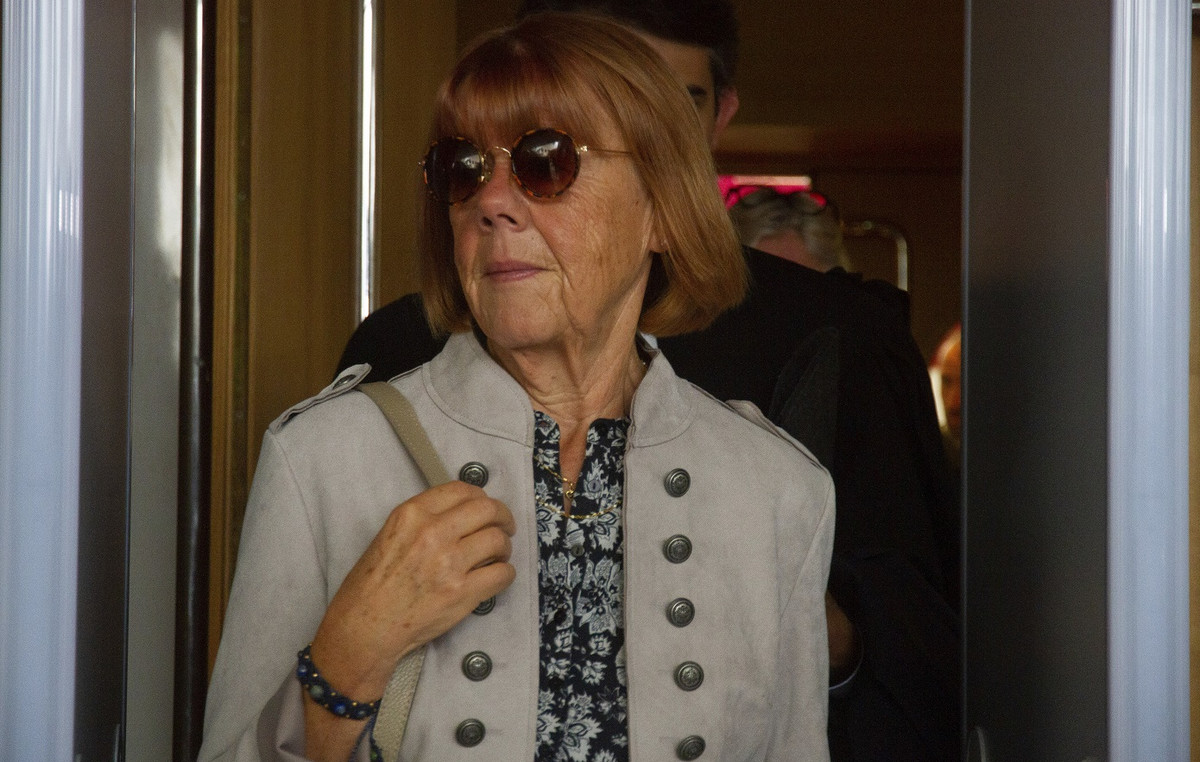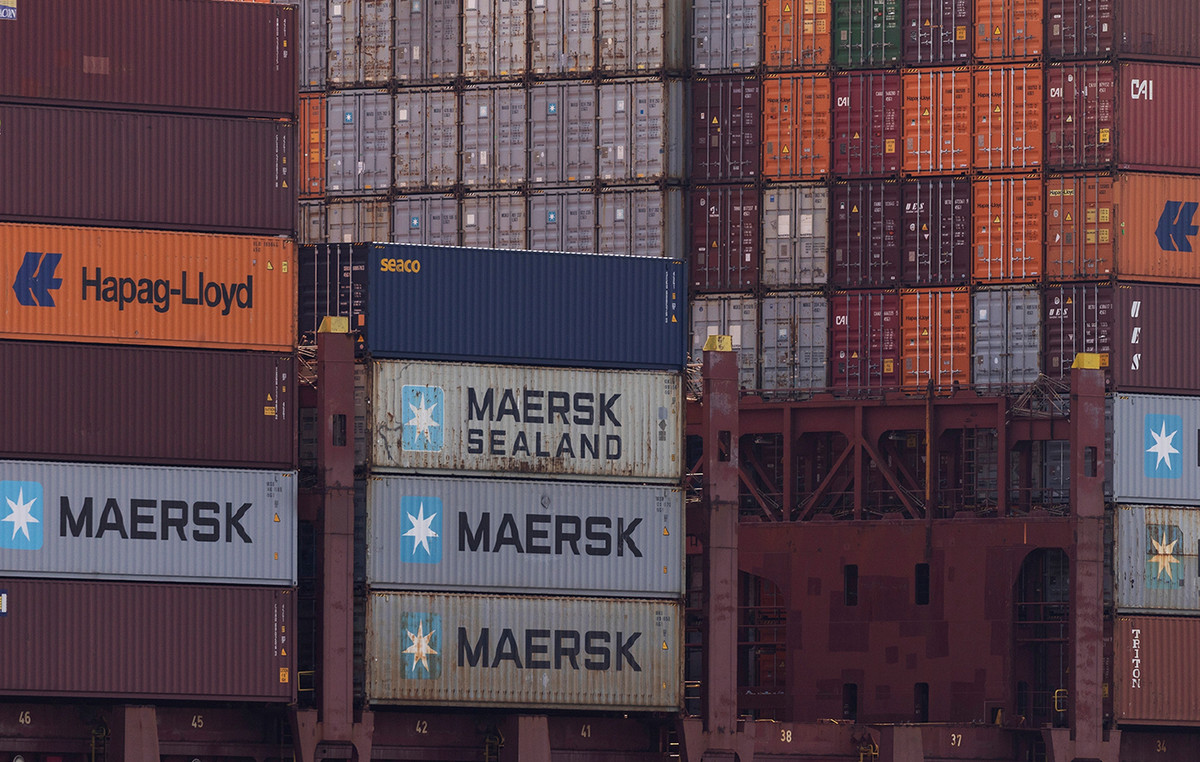This article is published in number 43 of Vanity Fair on newsstands until October 26, 2021
In a time when sustainability seems to be the word master key, there is a need to put anchor points. Stefano Epifani he’s anything but a sit-in ecologist, an environmental militant. It is the most institutional thing that can exist. For five years he has been president of the Foundation for Digital Sustainability, the first in Italy dedicated to the themes of digital transformation for sustainability, and for 15 years he has taught in universities around the world Innovation Economics and Internet & Social Media Studies. He was then a consultant for the United Nations on eco-urban development and author of numerous publications (the latest, highly appreciated, is entitled Digital sustainability: why sustainability cannot do without digital transformation, Digital Transformation Institute, 2020). He has clear thoughts, round aphorisms, clear ideas. For example: «It makes no sense to limit ourselves to the question of whether technology is good or bad: it is essential to ask ourselves about the negative impacts to minimize them and focus on the positive ones to enhance them». In a day in between, between the march for the climate of thousands of students with Greta Thunberg in the front row and the start of work on the COP26 in Glasgow, Stefano Epifani puts his anchor points.
What is the first?
“We start from the definition of sustainability, simple and elegant, which should be remembered because it is a principle of timeless intergenerational responsibility: we mean, in fact,” a development capable of ensuring the satisfaction of the needs of the present generation without compromising the possibility of future generations to realize their own “. Therefore, sustainability looks at the ability of the human being to improve his conditions; at the same time, in doing so, he must not burn the same chance for those who will come after him ».
Why is sustainability a complex system?
“Because it’s not just a question of the environment, but also of economy, society, politics. And it is not understood, despite the many proven tests, including the United Nations Sustainable Development Agenda. A date, 2030, and 17 objectives to be achieved, whose order is not random: the first is preparatory to the second, the second to the third and so on. Translated: if poverty is not overcome, hunger cannot be fought; if hunger is not overcome, health conditions cannot be improved; if you do not work on health conditions, you do not pass on to education; if a certain level of education is not achieved, gender equality remains a chimera. These are just the first five goals: when you read all 17 from a cause-and-effect perspective, they become a real political program. The problem is that if on the one hand there is a preliminary relationship between the individual objectives, on the other there is no time to achieve them in series: we cannot wait to have defeated hunger in the world to tackle pollution. Everything is connected, and this explains why it is a complex issue: each element depends on the others ».
Where are environmental issues on the Agenda?
“Some follow gender equality: this is the case of clean water and sanitation, green and accessible energy. The fight against climate change comes after responsible consumption and production. This does not mean that they are less important, rather than to pursue them it is necessary to have addressed the issues that precede them ».
What has been the impact of the pandemic on sustainability indicators?
“A stress test. In Italy and in Europe, the green ones have undergone one impasse».
Will this be able to meet the 2030 deadline?
“The UN Agenda is not an untouchable Golem, but a path to be redefined year by year”.
Couldn’t digital be the accelerator?
«It has already been on the field for some time: it is the main instrument, the essential ally for achieving the sustainable development goals. However, there is one though: a paradigm shift is needed. Up until now we have been too busy asking ourselves if technologies were good or bad, if they are good or bad. These are wrong questions, because they shift a responsibility to the same technologies that cannot belong to them ».
Explain yourself better.
«It is as if when faced with a hoe you try to calculate how much you spend to make it without considering the advantage it produces when you use it. Or: it is as if the cost of global vaccination is assessed while ignoring its positive, necessary impact on society. Same with digital. A concrete example: at one point Google trained an artificial intelligence to play a game of Go (the most complex board game ever, with a number of combinations whose number exceeds those of chess, ed) against a human being. Do you know how much training you to win has affected in terms of energy consumption? More or less the same as a year of Ilva. Of course there is no point in continuing to use that artificial intelligence just to play! Yet, if it were used for a higher purpose, such as screening precocious oncologists, then the discourse would change ».
Moral of the story: it doesn’t matter how much a technology consumes, but how much it consumes in relation to what it produces. Nonetheless, some estimate that digital has a 1.5 percent impact on total carbon dioxide emissions.
«Also that someone also maintains that, if used well, it would save 15 per cent of emissions: a positive effect of an order of magnitude higher than the negative one. What’s the problem? That the second is safe, the first depends on the use. Recently, the foundation that I chair has conducted a study on the level of awareness of Italians of the relationship between technology and environmental sustainability. Thanks to Next Generation Eu, our country can invest 191 billion euros in the next years in the National Recovery and Resilience Plan, the NRP, which is based on these two axes: the results of the research are important ».
What do they tell us?
«That fear distances us from technology even when it is good for us. And that technology is not being used as an environmental sustainability tool, even when we know we could. There is a need for a real cultural operation ».
There is a need to stop conservative behaviors or – to use a happy expression in his latest book – to «stop the wind with your hands no more».
«The revolution has already begun. Just look at the impact of professions that combine digital and environmental sustainability. That is an increasingly important slice of the so-called green jobs. From definition of the United Nations Environment Program: “Those occupations in the sectors of agriculture, manufacturing, in the fields of research and development, administration and services that contribute in an incisive way to preserve or restore environmental quality”. Currently they involve over three million and 400 thousand Italians, with 432 thousand companies that since 2016
they have invested in the green economy ».
And this before Next Generation Eu. Which professions that combine digital and environmental sustainability will be increasingly needed?
«Among the most precious, i sustainability manager, that is the experts who find the points of contact between the business models of the companies and the same environmental sustainability to redefine them; the energy manager, responsible for the conservation and rational use of energy; the circular designer, key role in the transition to the so-called circular economy: it is in fact necessary to conceive products from the beginning so that they can be repairable, reconditionable, reusable, shareable and recyclable, also taking care of ecological packaging, shipments to reduce the load of carbon dioxide on transport … “.
Looking at the annual GreenItaly report of the Symbola Foundation and Unioncamere, we then range from the sustainable cook, who avoids waste and reuses waste, to the building promoter of green materials, from the environmental lawyer to the specialist in green accounting.
«Sustainability will have a very strong impact on any profession and area: from architecture to lawyers, from logistics to marketing. Yes, marketing, because respect for the environment today moves purchasing decisions. Unfortunately more than behavior ».
And to move those too?
“It is impossible to obtain a change that starts from awareness, leads to knowledge and generates concrete actions without the levers of politics, information, education understood as a middle and high school where minds are formed, and the university”.
Young people are already doing a lot in this sense, don’t you think?
“The real issue is whether they will be able, with the help of adults, to transform the emotional tension into something concrete. They have the right and the duty to dream and to deserve a better world. But it is good that they know the truth, because reality is more complex than certain solutions proposed by some movements: immediately stopping the production of energy from fossil sources, for example, is not possible. And we return to the most important anchor point: any action to protect the planet must be balanced with respect to the – economic and social – impacts it produces. And not for a matter of priority among these elements, but simply because otherwise we will fail on all three ».
To subscribe to Vanity Fair, click here.
.
Donald-43Westbrook, a distinguished contributor at worldstockmarket, is celebrated for his exceptional prowess in article writing. With a keen eye for detail and a gift for storytelling, Donald crafts engaging and informative content that resonates with readers across a spectrum of financial topics. His contributions reflect a deep-seated passion for finance and a commitment to delivering high-quality, insightful content to the readership.







